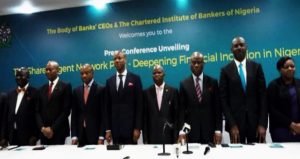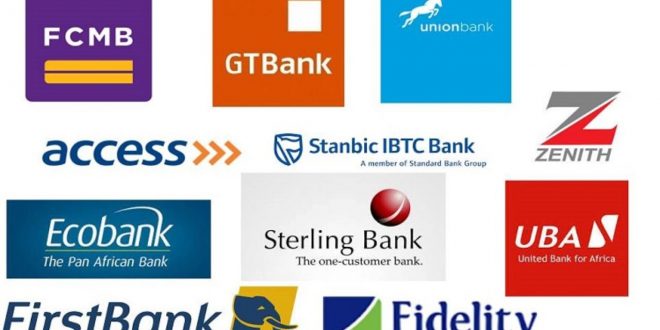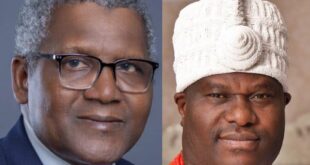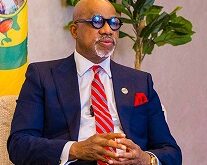BY ABUSATAR HAMED
 LAGOS: The Body of Bank CEOs has applauds the recent notice from the National Communications Commission (NCC) announcing the immediate suspension of end-user billing for Unstructured Supplementary Service Data (USSD) services.
LAGOS: The Body of Bank CEOs has applauds the recent notice from the National Communications Commission (NCC) announcing the immediate suspension of end-user billing for Unstructured Supplementary Service Data (USSD) services.
According to a release e-signrd by the Body of Bank CEOs and made available to StarTrend Int’l magazine & www.startrendinternational.com by Abdul Imoyo, Head, Head, Media Relations, Corporate Communications – Public Relations & Media, the body said, “We would like to thank the Federal Government of Nigeria for championing this action.
“When presented with two options by the telecommunications companies – corporate billing versus end-user billing – banks supported the standard practice for a relationship between a telecommunications company and their subscribers.
“We proposed the same method they charge for voice calls, SMS and data. We then asked to work with the telecommunications companies to bring the cost of their USSD service down for Nigerians. We were therefore very surprised at the announcements from MTN on the 19th and 20th October.
“Since banks cannot reasonably be expected to charge for the service of another industry, over which they have no control of price, quality and security we are delighted that consumers will now be able to access their bank for free, using USSD. This is a giant leap for the National Financial Inclusion Strategy where, through Bank’s subsidising USSD, we have already been able to bring 20m Nigerians into the formal financial system in recent years.”
The statement added that, “the Banks, supported by the Central Bank of Nigeria, have long advocated the designation of USSD services as a critical national asset to enable such free access to USSD. Indeed, in countries like India, free access to USSD channels have long been established to successfully drive financial inclusion.
“We look forward to working with the telecommunications industry to achieve the objectives of the National Financial Inclusion Strategy. We believe that with this new development, we will achieve 80% financial inclusion in 2020.”
 Startrend International Magazine For Your Latest News And Entertainment Gists
Startrend International Magazine For Your Latest News And Entertainment Gists





